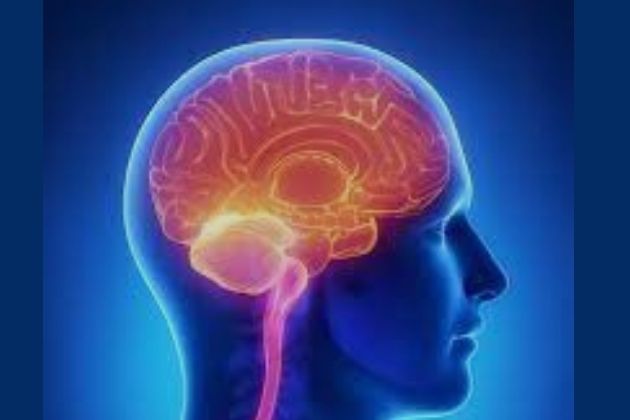Aphasia is a common condition that affects millions of people worldwide. A person living with aphasia will face difficulty in speaking, reading, or trying to communicate with others. Even though the person’s intellect is intact, an individual will find it difficult to put his thoughts into words. Aphasia can either occur suddenly or develop gradually over the years, but the patient will have to face difficulties in performing daily activities and tasks.
What is aphasia?
It is the disorder of communication that occurs due to damage or injury to the portion of the brain that controls speech. For most people, these are the areas on the left hemisphere of the brain. Simply put, we can call it the defects in expression or comprehension of speech. People suffering from aphasia have to face a lot of difficulty in understanding conversation, understanding written words as well as problems in writing words, and also using numbers.
Patterns of aphasia
People with aphasia may experence different patterns of weaknesses and strengths.
● Comprehensive aphasia. Also called Broca’s or nonfluent aphasia, people suffering from this pattern of aphasia may understand what others say better than they can speak. Individuals with this pattern struggle to get words out, omit words and speak in very short sentences. These people may say, “Walk park today” or “Want food”.
A hearer can generally understand the meaning. People with this pattern of aphasia are usually aware of their difficulty in communication and can get frustrated. These people may also have right-sided weakness or paralysis.
● Expressive aphasia. Espressive aphasia is also called fluent or Wernicke’s aphasia. People suffering from this aphasia pattern can speak effortlessly and fluently in long, complex sentences which may not make sense or include incorrect, unrecognizable, or unnecessary words. These people generally do not comprehend spoken language well and usually do not realize that others cannot understand them too.
● Global aphasia. Characterized by poor comprehension along with difficulty in forming words and sentences, Global aphasia is caused by extensive damage to the language networks of the brain. Individuals with global aphasia suffer from severe disabilities with expression and comprehension
What are the signs and symptoms of aphasia?
The signs and symptoms are different according to the areas of the brain affected . Some changes or issues in daily activities help us to identify as the symptoms of aphasia which are :
● Difficulty in distinguishing the name of any objects, known persons, places, and any incidents.
● Difficulty finding the correct or appropriate words when reading, writing and speaking.
● Facing trouble while pronouncing the words which is also termed as Dysarthria.
● Chances of skipping common or small words such as was, the, of, while talking. There is a lack of grammatical correctness in speech.
● Low level of understanding of the conversation, with a poor quality of talk.
● Inability to set the words in an arranged form.
● Lack of awareness about their fault in their own spoken speech.
● Limited speech with more effort or sometimes repeating the same words and phrases over again and again.
● Difficulty in performing simple mathematical solutions.
● Presence of nonsensical speech. For example, saying “blem” for “ball”.
How is aphasia treated?
The treatment of aphasia depends upon the severity of damage and can be categorized as mild, moderate, or severe . Each will receive specific treatment.
If the brain damage is mild, there is no need for any medical or surgical treatment. Furthermore, we can treat them by providing speech therapy that helps to improve their language or communication skills.
Similarly, individuals suffering from aphasia are more prone to go into depression due to a lack of communication. So they should seek medical treatment as soon as possible.
Currently, some medications are being researched upon for treatment of aphasia. These include medicines that may improve blood flow to the brain, enhance recovery ability of the brain or help replace depleted neurotransmitters (chemicals in the brain). Many drugs, like piracetam and memantine (Namenda), have shown promise in small studies. However, more research is required before such treatments can be recommended.
Moreover, there is no particular drug treatment for aphasia. Therefore, doctors mostly advise some medications for symptomatic treatment.
Complications of aphasia
For a person suffering from aphasia, the condition usually takes a longer period to show signs of improvement, sometimes years to even decades. Complete recovery is not fully achieved. So, people do face problems in their day to day life due to inappropriate communication. It affects their career, day to day activities that tend to make them frustrated and lonely which is a high risk for depression.
FAQs (Frequently Asked Questions)
1. What are the causes of aphasia?
There are various causes of aphasia. The most common cause of aphasia is any injury or damage to the brain having been caused due to stroke. The vessels either rupture or bleed within the brain resulting in cell death in the areas that are responsible for language. Infections, brain abscess, Migraine, Epilepsy, Brain Tumors, Parkinson’s disease, etc are other reasons for brain damage . Primary progressive aphasia is another type where language difficulty develops slowly. This is due to the gradual degeneration of brain cells located in the language networks. Sometimes this type of aphasia will progress to a more generalized dementia
2. Does aphasia go away?
Currently, there is no complete cure for aphasia. However, the recovery or partial improvement in the condition varies in each individual and sometimes takes years to recover fully. The patient will need speech and behavioral therapy, treatment of the underlying cause, etc.
3. How do you test for aphasia?
The physician will suggest the patient have a CT scan of the Brain or to have an MRI scan that will help in identifying the exact location of the lesion, Tumors, infarction, bleeding etc. The doctor will also perform some tests, such as asking patients to name specific objects, etc.


















